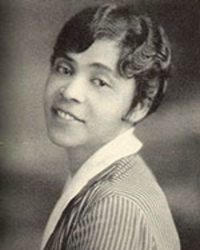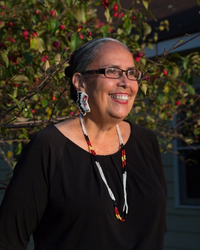March 8th, 2023 Celebrating Women's History Month
7 min read
March is both Women’s History Month and Social Work Month. We want to take this opportunity to celebrate the amazing women who have made this field what it is today. In addition to being a crucial source of progress and leadership, women currently make up more than 80% of the social service workforce. Every day, these women are on the front lines protecting and working with the most vulnerable children and families in our community. While we cannot recognize every social worker by name for their passion and dedication, we hope the stories of these female pioneers can inspire us to honor every woman who does this work without expecting recognition.
Jane Addams

She is commonly known as the “Mother of Social Work.” She co-founded the first social settlement in Chicago, and with the residents was a champion for public health, education, immigrants rights, free speech, and fair labor practices. She was also a fierce advocate for children, helping establish public playgrounds and parks, desegregated schools, and the first Juvenile Court in the United States. During her life, Jane also championed women’s suffrage and civil rights causes. She was the second woman to be awarded the Nobel Peace Prize.
Mary Ellen Richmond

Many credit her as the woman who helped standardize the profession of social work. She called for training for social workers that included scientific methodology for both the diagnosis and providing of treatment. Thanks to her work serving poor and vulnerable communities, she was able to transition from charity work to a systematic profession based on research, data, and training that allows social workers to best care for the people they are serving.
Thrya J. Edwards

Thyra was a teacher and social worker who devoted her talents and energy to advancing labor rights and child welfare. She rose to international prominence as a correspondent and columnist for various African-American newspapers. She had an international approach to social work and viewed her journalistic work, travel seminars, speaking engagements, and union organizing as a part of her role as a professional in the social work arena. Among her long list of accomplishments is founding a children’s shelter, organizing women’s labor movements, and association with prominent American civil rights activists.
Esther Wattenberg

Many in the Minnesota child welfare community know her as the co-founder and director of the Center for Advanced Studies in Child Welfare (CASCW) at the University of Minnesota. She was also a professor of social work at the University and a fierce advocate for underserved women and children. Her tireless work into her late nineties was critical in improving the wellbeing of children and families in Minnesota and across the country. Each year, CASCW awards the Esther Wattenberg Policy Award for exemplary policy work and contributions impacting children and families in Minnesota.
Ruby Gourdine

Dr. Ruby Gourdine was a longtime innovator and champion of racial equality in the workplace. She was also a fierce advocate for children with disabilities, ethical standards, and systematic reform of youth services. After obtaining her Doctor of Social Work degree from Howard University in 1984, she held positions as the Director of Field Education, associate professor, professor, Chair of Direct Practice, and many more. She was also recognized as a National Association of Social Workers (NASW) Social Work Pioneer for her legacy as a social justice warrior for social work education.
Dorothy Roberts

Dr. Dorothy Roberts is an American sociologist, law professor, and social justice advocate. She is the author of more than 100 scholarly articles and book chapters, as well as a co-editor of six books on such topics as constitutional law and women and the law. Her path breaking work in law and public policy focuses on urgent contemporary issues in health, social justice, and bioethics, especially as they impact the lives of women, children, and African-Americans. She is currently a professor and the director of the Program on Race, Science, and Society at the University of Pennsylvania.
Anita Fineday

The Honorable Anita Fineday is an attorney, advocate, and enrolled member of the White Earth Tribal Nation, where she previously served as the Chief Judge for 14 years. She also served as an associate judge for the Leech Lake Band of Ojibwe and the Grand Portage Band of Chippewa. She was the first Native American woman to argue in the Minnesota Supreme Court, and has also taught federal Indian law and policy at the tribal college, university, and law school levels. Currently serving as the Managing Director of the Indian Child Welfare Program for Casey Family Programs, she is a fierce advocate for Native American children, especially those in foster care.
Sandy White Hawk

Sandra White Hawk is a Sicangu Lakota adoptee from the Rosebud Reservation, South Dakota. She is the founder and Director of First Nations Repatriation Institute, whose goal is to create a resource for First Nations people impacted by adoption or foster care to return home and reclaim their identity. She is also the Director of Healing Programs for the National Native American Boarding School Healing Coalition, and her work brings together adoptees/fostered individuals and their families and professionals with the goal of identifying post adoption issues and strategies that will prevent removal of First Nations children. She has become a spokesperson on how the issues in the foster care and adoption system have impacted First Nations People. Her work has also included appearances in three documentaries, being a contributing author to three books, and has earned her seven awards from institutions all over the country. She just published her first book as well, A Child of the Indian Race: A Story of Return.
Ruth McRoy

Spurred by her experiences as a new social worker, Dr. Ruth McRoy’s work has been focused on building the body of research to inform adoption practices. Her research and scholarship has focused on many topics including racial disproportionality in child welfare, family preservation, kinship care, adoptive parents, adopted children, racial identity development, transracial adoptions, older child adoptions, and post-adoption services. She has published over 100 journal articles and 12 book chapters, and currently is a research professor at the University of Texas Steve Hicks School of Social Work. Her work has made a lasting impression on the social work profession, on the lives of adopted children, and on strategies to promote effective and sustainable community-university partnerships as well as interprofessional collaborations.
Judith Rycus

Dr. Judith Rycus has worked for more than 40 years as a program developer, organizational development specialist, policy analyst, program evaluator, consultant, trainer, and manager. She is the current Program Director and Director of International Child Welfare at the Institute for Human Services in Ohio, and she was instrumental in the design and coordination of the Ohio Child Welfare Program. She is also a widely published author and has written books, articles, training curricula, and policy white papers on a broad range of child welfare topics. Her skilled facilitation has led teams of child welfare professionals in planning and implementing change initiatives all over the world.
Priscilla Day

Dr. Priscilla Day is Anishinaabe and an enrolled tribal member of the Leech Lake Reservation. She has taught at the University of Minnesota Duluth (UMD) since 1993 and has held positions as professor, head of the Department of Social Work, and the principal investigator and director for the Center for Regional and Tribal Child Welfare Studies. Her main areas of research are American Indian family preservation and cultural competence, and she is also the author of many published articles and book chapters focusing on American Indian child welfare and work with elders. Dr. Day’s contributions to curriculum and student experience at UMD are remarkable and her vision has helped to make the social work program there strong and vibrant.